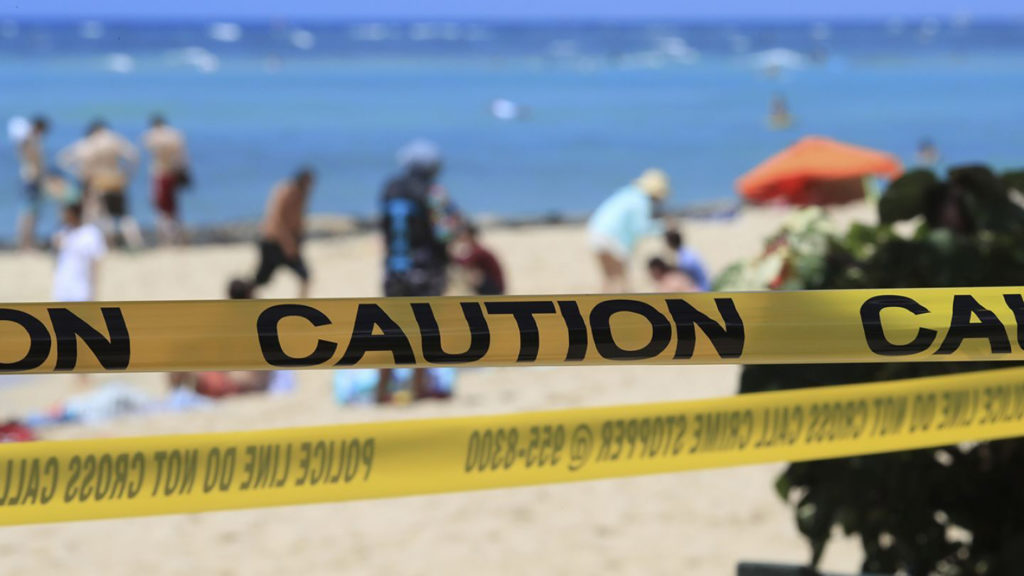Covid exposes health disparities for Hawaii’s Filipinos

In this Friday, March 20, 2020, file photo, beachgoers are seen in the background, yellow caution tape wrapped across Waikiki in Honolulu as a pandemic warning. AP PHOTO
HONOLULU — Filipinos in Hawaii are disproportionately absorbing the coronavirus pandemic’s negative impact on health and livelihood, according to an analysis published in Civil Beat.
Filipinos in Hawaii are second only to Pacific Islanders as the most impacted by Covid-19, according to recent data from Hawaii’s Department of Health.
More Filipinos relative to the community’s population are working on the Covid-19 front lines as health care workers.
“A large number of Filipinos serve as nurses: nearly one-third of employed RNs and nearly half of employed LPNs in Hawaii are Filipino. Many also serve as doctors, nurse aides, caregivers, or transporters,” according to the report’s authors Angel Lynn Talana and Sydney Unciano. Moreover, many Filipinos work in other essential services such as retail, grocery and food services, risking more exposure to Covid-19.
The negative economic impact on Filipinos is also notable as they are highly represented in service jobs in the state’s tourism industry, which is reeling from the pandemic.
The report also notes that “most Filipino families live in a multi-generational household intended to help afford housing and basic needs,” which could lead to the easy transmission of COVID-19.
The prevalence of chronic illnesses such as diabetes and cardiovascular diseases among Filipinos also increases vulnerability to the coronavirus and the likelihood of more fatalities.
Filipinos’ health status is still “poorly understood” and has been limited despite their being the second-largest population in Hawaii,” the reports claims. “Filipinos are often aggregated under Asians or Pacific Islanders which can obscure how Filipinos are impacted by health disparities.”
Dr. May Rose Dela Cruz, assistant researcher at the University of Hawaii Manoa Office of Public Health Studies and co-founder of PUSO, explains that distinguishing Filipinos from the Asian category could allow a better understanding of the pandemic “has affected Filipino health, food security, economy and more.”
Prior to the pandemic, Filipinos already reported one of the lowest rates of access to health care across racial/ethnic groups in the state, according to a recent letter to state leadership by the Pilipino Underrepresented Scholars Organization. This could mean limited access to routine as well as specialized care during the pandemic.
“Limited English proficiency and health care literacy, along with the system’s lack of translation services in Ilocano and Tagalog, especially in tele-health services,” also pose difficulties in navigating the health care system. This is especially true for older Filipino immigrants and those with chronic conditions.
Bilingual support services for Filipino immigrants, even via tele-health interaction, could boost the quality of care they receive.
Cultural factors such as Filipinos’ customary “bahala na” or resigning attitude, often adopted in times of hardship, could also exacerbate health risks during the pandemic.
“Culturally sensitive approaches” including family and social support groups and church socials conducted via hybrid or virtual methods of communication, could help ease the pandemic’s psychological pressures, the report suggests.

